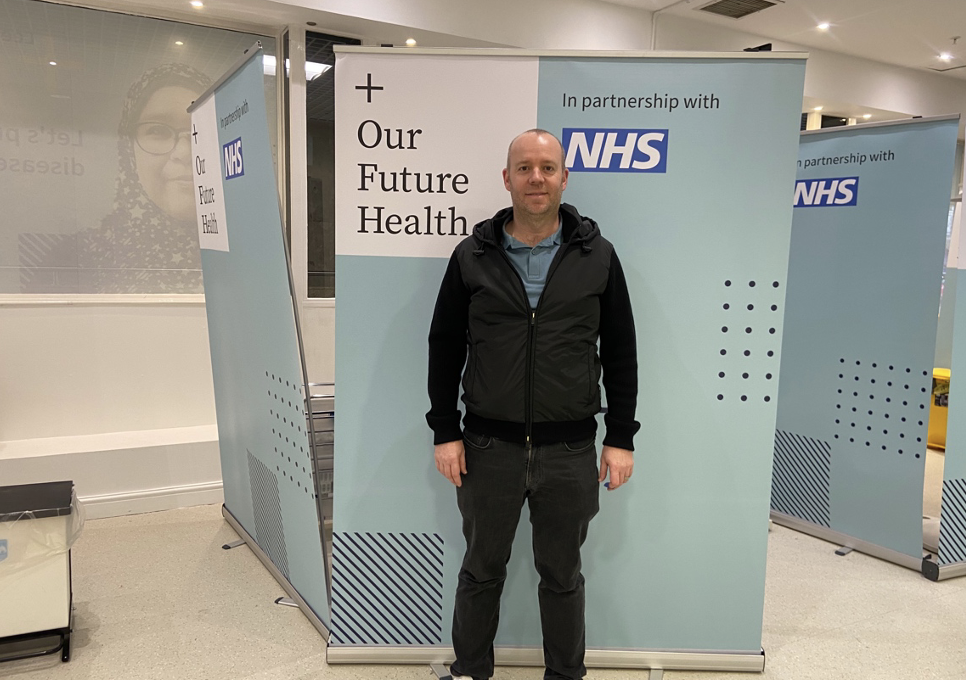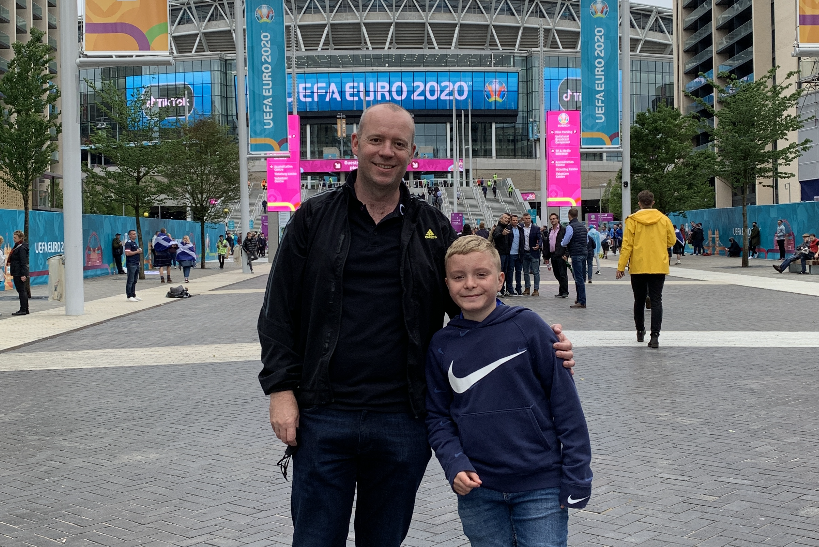‘Cancer has plagued my family – now I’m backing data to help us beat this terrible disease’

Conversations about ill health are often difficult. But for Paul Henshaw, 47, an IT Consultant from Leeds, who has seen a number of cancer diagnoses in his own family, it’s a topic he talks about with more ease than most.
“The last three generations of my family have died from a form of cancer,” he reflects. “My great grandfather died of gastric cancer, then my grandfather died of liver cancer and my grandmother died of lung cancer.”
Perhaps that history can explain why Paul gravitated towards a career in healthcare during his 30s, working to improve NHS services through their use of technology. It was a career move that would give him insight into the power of health data – at the very moment when his family would be forced to deal with two more shock cancer diagnoses.
‘The prognosis was not positive’
In 2013, Paul’s father was diagnosed with Stage 4 oesophageal cancer, at the age of just 56.
“It was a tremendous shock,” Paul remembers. “He had never had a day in hospital in his life – he was even born at my Grandparents’ home.” Paul’s first instinct following the diagnosis was to understand treatment options, but it became clear that his father’s prognosis was not positive.
Between 2017 and 2019, oesophageal cancer accounted for 5% of total cancer deaths. 12% of people who receive a diagnosis survive for 10 or more years, but the chances of survival really depend on the stage at which the diagnosis is made. Statistics show that people who are given a diagnosis of Stage 4 cancer usually live for less than a year following their diagnosis.
“The decline in his health was rapid,” explains Paul. Sadly, his father passed away just four months after his diagnosis.
“The combination of how quickly it happened, combined with his relatively young age, made it hard for us to understand. It was incredibly tough to deal with. We had very little time to process the diagnosis before Dad passed away.”
Since losing his father, Paul says he has been more conscious of any stomach and gastric issues he notices. “If there’s even the slightest concern, I make sure I get it checked and explain my family history to my GP. I do what I can to lead a healthy lifestyle too.”
Paul became passionate about taking part in health research. “I want to help people who get a diagnosis like my dad did, to get better care and increase their chance of surviving it.”
At that point, no one could have predicted that the person most in need of help would be another family member.
A life-saving GP visit
Three years ago, Paul’s 9-year-old nephew went to his GP suffering with a rash on his back. When tests came back, they showed that he was suffering from a very aggressive form of liver cancer. This time, Paul’s family were told that the cancer had been found early. Doctors were hopeful that treatment would work.

It marked a tense period of time for Paul’s family. “After a course of chemotherapy, my nephew had a very big operation to remove the tumour and a large part of his liver,” explains Paul. Another course of chemotherapy followed, after which Paul’s nephew was declared cancer-free – only for another trace of the disease to be detected just months later. It meant yet another course of treatment and a second operation.
“Thankfully my nephew was in remission by late 2020. He is now very healthy – the typical handful that 12-year-old boys tend to be!”
The power of data
Reflecting on the difference in the outcomes of his dad’s diagnosis and his nephew’s, Paul believes that data plays a crucial role in improving healthcare. It’s why he signed up as a volunteer for Our Future Health.
“My work on NHS services gave me a positive insight into the value of data. Our Future Health will help researchers to identify issues, trends, and conditions that can impact our health. It will lead to an improvement in the healthcare we need when we are unwell.”
Paul is encouraging everyone who can “to give 15 minutes of their time to the programme. It’s a small sacrifice when you look at what could be achieved. Having worked closely with data and data analysis, I know that any increase in a sample of data helps people to do better and more productive things with it – like find early markers of diseases like cancer.
“My nephew’s diagnosis was early enough for doctors to treat. If my dad’s cancer had been discovered earlier, maybe his would have been too.”

Let’s prevent disease together
By volunteering for Our Future Health, you can help health researchers discover new ways to prevent, detect and treat common conditions such as diabetes, cancer, heart disease, stroke and Alzheimer’s.